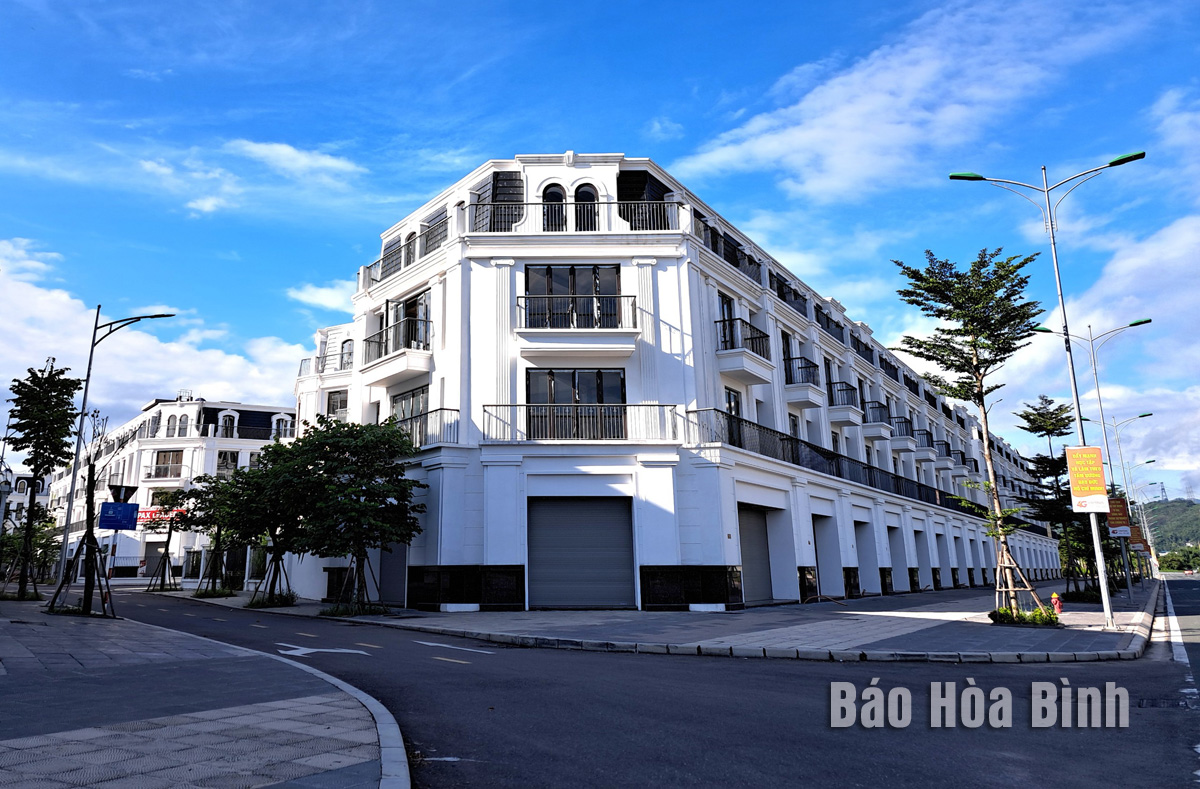The State budget collection in Hoa Binh province has received constant attention and directions from the provincial Party Committee, People’s Council and People’s Committee, the Ministry of Finance and the General Department of Taxation, along with effective coordination from all-level administrations and sectors.
By the end of May 2024, the state budget revenue was estimated at 2.88
trillion VND (nearly 113.23 million USD), equivalent to 71% of this year’s
target set by the Prime Minister, 50% of the target set by the provincial
People’s Council, and 196% of the figure in the same period last year.
Hoa Binh has
recorded relatively good budget collection from many sources such as the
foreign invested sector, the industry, trade and non-state sectors, personal
income tax, environmental protection tax, charges, fees, and land use fees.
The state budget collection so far this year has
posted breakthroughs compared to the same period last year. However, it is a
fact that revenue sources remain unsustainable and still depend much on land
use fees and the Hoa Binh Hydropower Company. Meanwhile, tax arrears remain
very high. Two-thirds of the 2020 - 2025 tenure has passed, but Hoa Binh failed
to achieve the budget collection targets for some years. Therefore, it is hard
to reach the revenue target of 10 trillion VND for 2025.
At many forums and meetings, the provincial
Party Committee, People’s Council, and People’s Committee discussed causes of
the poor performance in budget collection. One of the main causes is that the
nurturing of revenue resources remains limited. Changes in the collection
policy in recent years also form one of the causes. Others include the slow
implementation of industrial park and cluster projects, ineffective investment
attraction, some investors’ weak capacity, and businesses’ small and medium
sizes, limited financial capacity, and slow recovery from impacts of the
COVID-19 pandemic.
The state budget collection plays a highly
important role in ensuring resources for local socio-economic development.
Increasing the revenue aims to improve the quality of people’s life, build
modern and comprehensive infrastructure, guarantee local budget efficiency, and
gradually reduce the dependence on support from the government. Therefore, it
is considered a task of leading importance.
To speed up the state budget collection to
fulfill this year’s task and secure collection sustainability, the Hoa Binh
steering board for promoting the state budget collection and contribution said
firstly, it is necessary to complete zoning plans to serve as the basis for
implementing projects. It is important to accelerate land auctions, land use
fee collection, and the re-organisation of state agencies’ properties;
implement comprehensive measures to strictly manage local revenue sources; and enhance
inspection and examination to prevent tax losses and evasion so as to bring tax
arrears to less than 8% of the total state budget collection.
Another measure is to step up communications and
tax management over online business, e-commerce, telecommunication and internet
services, and especially the use of e-invoices.
The province’s viewpoint is to diversify revenue
sources to promote economic sectors’ contributions to the state budget and
ensure collection sustainability.
As enterprises, cooperatives, and investment
projects are the main and long-term source of budget collection, authorities
also need to create favourable conditions for those taxpayers to operate
profitably to nurture revenue sources.
According to data from the Hoa Binh Provincial Party Committee, the industrial production index for the first six months of 2025 is estimated to have increased by 20% compared to the same period last year. This marks the highest year-on-year growth rate for this period since 2020.
In the first six months of 2025, Hoa Binh province’s export turnover was estimated at 1.145 billion USD, marking an 18.11% increase compared to the same period in 2024. Import turnover was estimated at $ 804 million, a 17.15% increase, which helped the province maintain a positive trade balance.
The lives of the ethnic minority farmers in Tan Lac district have gradually improved thanks to the new directions in agricultural production. This is a testament to the collective strength fostered through the professional associations and groups implemented by various levels of the district’s Farmers’ Union.
With the motto the "product quality comes first,” after nearly one year of establishment and operation, Muong village’s Clean Food Agricultural and Commercial Cooperative, located in Cau Hamlet, Hung Son Commune (Kim Boi district), has launched reputable, high-quality agricultural products to the market that are well-received by consumers. The products such as Muong village’s pork sausage, salt-cured chicken, and salt-cured pork hocks have gradually carved out a place in the market and they are on the path to obtaining the OCOP certification.
In the past, the phrase "bumper harvest, rock-bottom prices" was a familiar refrain for Vietnamese farmers engaged in fragmented, small-scale agriculture. But today, a new spirit is emerging across rural areas of Hoa Binh province - one of collaboration, organisation, and collective economic models that provide a stable foundation for production.
Maintaining growing area codes and packing facility codes in accordance with regulations is a mandatory requirement for agricultural products to be eligible for export. Recently, the Department of Agriculture and Environment of Hoa Binh province has intensified technical supervision of designated farming areas and packing facilities to safeguard the "green passport" that enables its products to access international markets.


